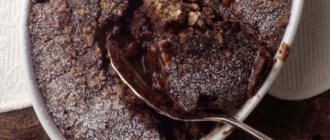25.08.2020 09:00
672
Some of us start drinking coffee as teenagers; a cup of black drink fills us with a sense of belonging to the adult generation. For the same reason, we can become addicted to cigarettes, alcohol, and luxury electronics. But it would be a mistake to think that in the case of coffee, there are no risks to health or the family budget.
Some of us start drinking coffee as teenagers; a cup of black drink fills us with a sense of belonging to the adult generation. For the same reason, we can become addicted to cigarettes, alcohol, and luxury electronics. But it would be a mistake to think that in the case of coffee, there are no risks to health or the family budget.
It all starts with invigorating coffee for breakfast, then a caramel latte in a cafe, a nut cappuccino while talking with friends. And now five cups of coffee a day becomes the norm. The morning is no longer good without your favorite drink. Over time, spending a day without a single cup of coffee means dooming yourself to a headache, depriving you of concentration, good mood and any physical strength. So, a harmless drink turns into a serious addiction.
It would seem that coffee is not cigarettes and there is nothing wrong with the habit of drinking espresso in the morning. But limiting yourself to one cup will require a lot of willpower. And a serious addiction to this drink can cause a significant blow to the wallet, liver and heart. In addition, living without coffee has a number of advantages. Having experienced them personally, you may regret that you were deprived of the pleasure of living without coffee for so long.
Morning stops being hard labor
Even if you are a confirmed night owl and morning is not your time of day, without caffeine support you will need less time to wake up. No matter how strange it may sound, it is true. The fact is that caffeine affects us in two directions at once: firstly, it develops a strong habit of waking up only after a dose of caffeine, and, secondly, it disrupts the quality of sleep. By stopping drinking coffee, a person begins to sleep more soundly, which means he gets better sleep, and getting up in the morning ceases to be a problem.
Trembling hands
Caffeine acts as a stimulant of the central nervous system. People who gave up coffee noted the appearance of a slight tremor, although, as they say, no one is protected - some suffered due to shaking hands and due to excessive love for the drink.
Your teeth will become noticeably whiter
This may seem obvious, but it’s hard to imagine how quickly teeth become lighter after giving up coffee. Simply eliminating any type of coffee, as well as black tea, from your daily diet will show tangible changes in your smile in just a week and a half. And to have sparkling white teeth, you just need to follow basic hygiene principles: brush your teeth twice a day, use dental floss and mouth rinses after meals. So, without expensive and unpleasant procedures at the dentist’s office, your teeth will naturally become whiter.
First of all, no one is saying that you have to stop drinking coffee. Your habit of starting the day with a cup of your favorite drink is probably doing more good than you think. But if you suspect you're drinking too much coffee or caffeine and want to curb your appetite, here's what might happen.
BuzzFeed 08/15/2016
You can lose weight
Your typical Starbucks order is probably adding size to your waistline; giving up coffee can save not only money, but also calories consumed. Research from Duke University researchers shows that daily consumption of caffeine in the form of coffee, tea or soft drinks increases daily sugar levels by nearly 10 percent, increasing the risk of heart disease and obesity. Even if you avoid extra sugars and fats and simply add cream and sugar to your coffee, one such serving can cost as much as 200 calories.
You may gain weight
Did you have a terrible appetite when one day you had to give up your dose of caffeine? Because coffee can temporarily suppress your appetite, you may find yourself reaching for something fatty or sweet more often than usual once you stop drinking your daily cup of the bitter drink. When you quit coffee, your body begins to look for other sources of fast sugar, increasing your blood glucose levels and daily calorie intake.
You could get better sleep
While you may feel tired as you adjust to life without coffee, you'll eventually get better sleep, especially if you're used to drinking coffee during the day or evening. A study published in the Journal of Clinical Sleep Medicine found that consuming caffeine even six hours before bed can disrupt your body cycle.
You may get headaches more often
BBC 01/31/2016 BBC 08/27/2015 BBC 06/12/2015 Atlantico 11/23/2014 Every coffee lover is familiar with the first signs of a severe headache that hits you when the body does not receive the required dose of caffeine. By stopping drinking coffee, you are depriving your body of adrenaline and dopamine, hormones that act as natural stimulants and keep you alert. Instead, adenosine, a hormone responsible for rest and fatigue, enters the brain, leading to headaches. To minimize discomfort, don't suddenly stop drinking coffee, says Wesley Delbridge, a spokesman for the Academy of Nutrition and Dietetics. Instead, limit yourself to one cup every two to three days. Replacing coffee with tea or even mixing regular coffee with decaffeinated coffee can help you avoid withdrawal symptoms.
Your health will worsen (but not for long)
Headaches aren't the only painful symptom of caffeine withdrawal. Those who stop drinking coffee report side effects such as depression, anxiety, dizziness, flu-like symptoms, insomnia, irritability, mood swings and sluggishness. But there is good news: all this will pass quickly. Experts say that most physical symptoms of caffeine withdrawal will disappear after two days, and other side effects will not bother you for more than a week or two.
You will have healthy teeth
Coffee contains acid, and therefore it destroys tooth enamel and stains your teeth with every sip. By giving up caffeine, you will protect your teeth and give yourself a snow-white smile.
InoSMI materials contain assessments exclusively of foreign media and do not reflect the position of the InoSMI editorial staff.
More energy in the afternoon
All coffee lovers know the feeling when, after lunch, the energy begins to leave and a second cup of vigor becomes vital. This is called “addiction”. Caffeine changes the biochemical processes in the body, forcing it to work according to its own rules. And the more coffee a person drinks, the more the body begins to require it to maintain an adequate state of vigor.
If you live without getting hooked on caffeine, it will be easy to banish afternoon laziness with a glass of water or a light walk. Which is much simpler, cheaper and, most importantly, healthier.
Premature aging
For a long time, people believed that it was coffee that provoked premature aging. However, so-called photoaging is a change in the condition of the skin caused by the negative influence of sunlight. Free radicals are produced that destroy collagen.
Your face will look fresher and younger
Americanos, cappuccinos and even lattes all cause severe dehydration. And if you don’t replenish fluid reserves, in the morning your face will look like after a stormy party.
In addition, coffee has the ability to accelerate the excretion of certain vitamins and minerals, including calcium and vitamin C. Calcium makes teeth, nails and hair strong and beautiful, and vitamin C is necessary for the formation of collagen. A deficiency of the latter affects the appearance of wrinkles, sagging skin, and loss of joint elasticity. So, in the long term, coffee can add up to 10 years to your age!
Cellulite
Caffeine helps fight the annoying “orange peel” on the skin. Even scrubs and cosmetics are mainly made from coffee - it increases overall blood flow and helps avoid the development and exacerbation of cellulite.
Getting rid of addiction
Coffee can become the only and best friend you want to see in the morning. And it will be a really pleasant relationship. But here’s what’s important to remember: addiction deprives us of choice; it organizes our entire life around itself. Not drinking a cup of coffee in the morning will give you headaches and irritability for the whole day. After lunch, you can forget about work, because all thoughts will revolve only around where to get more coffee. To look and feel good, it will be important to monitor your daily intake of water, vitamins and minerals more closely than usual. And if not, then admit that a cup of coffee has become the most important thing in life.
Weakening of the immune system
Scientists shared shocking research results with the public: according to their data, people who drink coffee have a much lower risk of premature death. For longevity, an average of 3-4 cups of drink per day is enough. Coffee strengthens the liver, gastrointestinal tract, cardiovascular and immune systems. The main thing is that you need to drink not instant, but natural ground coffee - so the positive effect will definitely not be long in coming.
Headache
During withdrawal from coffee, you are likely to get headaches in addition: this is due to a change in the rate of blood flow to the brain. Gradually this side effect will go away, but at first it will be difficult to do even basic everyday activities.
"Disadvantages" of drinking coffee
A coin, as they say, always has two sides. Despite all the positive properties of coffee, you should not abuse it. And that's why:
- Coffee is addictive, especially in children. Dependence on this drink is comparable to that of drugs and nicotine. Monitor the number of cups you drink, as over time you will want to drink more and more. If you regularly drink coffee and suddenly decide to sharply reduce the number of cups, be prepared for lethargy, loss of energy and drowsiness during the first few days.
- Coffee causes arrhythmia. If your blood pressure often jumps, then coffee is strictly contraindicated for you.
- Coffee dehydrates the body and is a weak diuretic. If you often like to treat yourself to a cup of coffee, drink plenty of clean water. This will help restore balance and prevent dehydration.
- Under no circumstances should you drink coffee on an empty stomach. The acids contained in the composition corrode the walls of the stomach and can cause gastritis, ulcers, and other stomach diseases. Also, you should not drink coffee immediately after eating. It interferes with the absorption of important microelements and substances from food. Treat yourself to a cup 30-40 minutes after eating.
- If you've had a difficult and emotional day, you should give up coffee. Caffeine increases feelings of irritability and anxiety, exacerbating panic and psychosis.
- Coffee should not be consumed during pregnancy. Its negative effects on the fetus have been proven by scientists.
- Coffee spoils the color of tooth enamel, giving it a yellow-brown tint.
If you try to sum it up, it is important to remember: “Everything is good in moderation.” If you love coffee and cannot resist a cup of this aromatic drink, drink a drink made from good quality beans and no more than 3-4 cups a day. But, as they say, first consult with your doctor: perhaps drinking coffee is contraindicated for you for a number of reasons that you don’t even know about.
Rosacea
Rosacea is a scattering of small bumps that are actually inflamed blood vessels under the skin. This disease is considered one of the most common; more than 14 million people suffer from it in the United States alone. But, take note, 1-2 cups of coffee a day can easily get rid of this.










